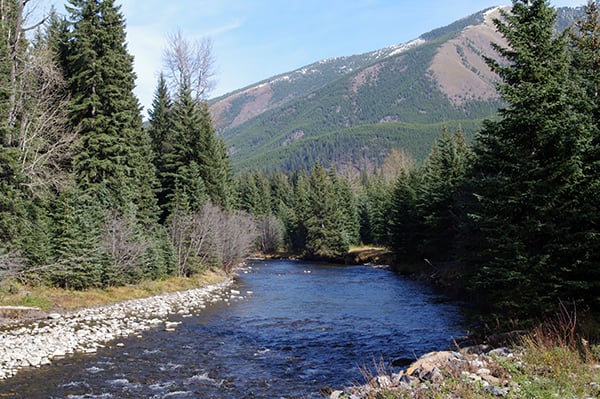Home »

Wildsight joins calls for federal EA for Castle expansion
Teck counters it is going through a B.C. environmental assessment process
Teck Resources Ltd.’s Castle coal mine expansion would be the largest coal mine in Canada, producing 10 million tonnes of coal per year. Despite Castle’s size, the coal mine won’t get a Canadian federal environmental assessment (EA) —unless Environment Minister Jonathan Wilkinson heeds the call of the First Nations, US governments and environmentalists calling for one, stated a June 26 media release from Wildsight.
Wildsight and Ecojustice join the Ktunaxa Nation, plus the US EPA, the State of Montana, and US Tribes in Montana and Idaho, in calling for the federal assessment of the Castle mine. Environment Minister Wilkinson has until August 19 to decide if he’ll start an assessment of the coal mine.
“It’s hard to believe that the largest coal mine in Canada wouldn’t get the highest level of environmental assessment we have in Canada by default,” said Lars Sander-Green of Wildsight, “but it seems that Environment Canada has accepted Teck’s argument that Castle doesn’t need an assessment because it’s too small.”
Castle would extract even more coal than the has been mined at the original Fording River mine beside it, which is currently Teck’s largest mine.
While the Impact Assessment Agency of Canada has determined that the mine expansion is too small to qualify for a federal assessment, Wildsight and Ecojustice dispute Teck’s accounting, saying that the company shouldn’t be allowed to count areas that are only planned for mining in the future as part of their existing mine when comparing the size of the Castle expansion to the existing Fording River mine.
“Castle mine would be right beside the upper Fording River, where we found out last fall that 93% of adult trout disappeared in just the last two years.” added Sander-Green. “The federal government has a constitutional responsibility to protect fish and the rivers they live in, so it’s high time they take a hard look at what’s happening in the Elk Valley.”
Teck’s Manager of Social Responsibility Nic Milligan told e-KNOW the proposed Castle Project is an extension of Teck’s existing Fording River Operations and is not a new mine.
“Using the existing operation’s infrastructure, such as the steelmaking coal processing facilities and maintenance shops, the Castle Project is necessary to extend the life of Fording River Operations and retain the 1,400 local jobs and major economic benefits that depend on the mine. This project is undergoing a rigorous environmental assessment under British Columbia’s Environment Assessment Act. Teck is also committed to engaging with communities and local Indigenous groups to ensure that the environment is protected and that the project contributes to local communities,” Milligan stated.
Wildsight said it is also still worried about long-term water pollution flowing from Teck’s coal mines.
Water quality “is a major reason cited by those requesting the federal review, noting the danger to fish not just in the Fording and Elk Rivers, but also downstream in Lake Koocanusa, through the Kootenai River in Montana and Idaho, and right back into Canada in Creston, Wildsight said in its media release.
Concerns about carbon emissions, travel routes used by grizzly bears moving along the Continental Divide, destruction of mountain grasslands important for bighorn sheep, and First Nations’ rights were also cited.
“If Minister Wilkinson is serious about addressing the climate crisis and protecting the environment, he won’t greenlight Teck’s attempt to expand B.C.’s largest coal mine without first conducting a full impact assessment of the project,” said Dan Cheater, a lawyer at Ecojustice.
While the mine will be reviewed by B.C.’s Environmental Assessment Office, those calling for the federal assessment point to worsening conditions in Elk Valley rivers despite three provincial reviews of mine expansions in the last seven years.
“The real problem here is that B.C. just won’t stand up to Teck to get them to clean up their act. B.C. won’t enforce provincial pollution limits and keeps turning the other way as the problem gets worse and worse” said Sander-Green, “so that’s why it’s so important for Environment Canada to step in now for a full federal environmental assessment.”
Lead image: Fording River east of Elkford. e-KNOW file photo
e-KNOW







